If you’re passionate about the history and culture of Mexico, then Valladolid makes an excellent base for exploring some of the BEST Maya ruins and cenotes in the country.
You’ve got the ancient ruins of Ek’Balam and Chichin Itza, 7 beautiful cenotes that you can get to by foot, bike, or public transportation, a city full of colorful colonial architecture, and a museum with the best collection of Mexican folk art in the country.
Along with all of that, Valladolid (population 48,000) is a safe and laid-back place to spend a few days in. However, if you’re shorter on time, it also makes for an excellent day trip from Merida, Cancun, Tulum, or Playa del Carmen.
Here is a list of my 15 favorite things to do in Valladolid and the surrounding area AND everything you need to know to have the perfect tour of the city.
Disclosure: This post may contain affiliate links. As an Amazon Associate and a Bookshop.org Associate, I earn from qualifying purchases. Please see this website’s Disclosure for more info.
In This Valladolid Post, You’ll Find…
- About Valladolid
- Valladolid Top Attractions, Tours, and Activities
- Valladolid Itinerary
- Valladolid Travel Guide & FAQs
About Valladolid
Valladolid is a compact city that is easy to navigate by foot or bike. The historic center is where you’ll find all the best accommodations, restaurants, and places of interest.
The ADO Bus Station is just two blocks from the main square, making it easy to hop off a bus from Merida or Cancun and get to your accommodations and start exploring.
For the ruins and most of the cenotes, you will need to take some kind of transport.
History of Valladolid
Known as the Sultan of the East for its beautiful architecture, Valladolid has played a significant role in many of the major events in Yucatan history. Some good, some bad, but all very fascinating.
Valladolid was first established in 1543 in another area of the Yucatan. But the residents complained so much about the malaria-infested mosquitoes and insufferable humidity that the city leaders moved the city.
They chose Zaci.
The Maya of Valladolid
The only problem was that someone was already living there: the Maya. However, in typical colonial fashion, that fact didn’t stop the conquistadors. The Spaniards kicked the Maya out of their city, tore down their buildings, and used the stones from their temples to build their churches, mansions, and government buildings.
Unfortunately for the Maya, things continued to get much worse. Eventually, they lost almost all their land to the colonizers and their ancient books were destroyed by the church. The Maya were converted to Christianity, and then to top it all off, they ended up working on the large estates as indentured servants (a.k.a. slaves).
Unfortunately for the Spaniards as well, the Maya did not take things lying down. Over the next several centuries, they rose up against the Spanish citizens and their allies several times.
The first time was a year after the Spaniards took over Valladolid. They were immediately defeated, however.
In 1705 they revolted in an event called the “Assassination of Mayors” and after killing a number of important people in the town, including the mayor, they were defeated again by the Spanish troops.
In 1821, Mexico became independent from Spain. After that, things got even worse for the Maya. At least when Mexico was part of Spain, the Europeans’ exploitation of the indigenous population was held in check by the Spanish crown.
The boom in henequin production that swept over the Yucatan fueled the greed of the white and mestizo Mexicans, and the Maya lost more of their land and became more indentured.
Finally, in 1847, the Maya had had enough and revolted again in what is called the Caste War.
Valladolid was one of the first places that the Maya attacked. They laid siege to the city for two months before the army was able to break it. Some Maya were able to escape, but many were slaughtered.
The Caste War went on until 1915.
Best Books on the history of the Yucatan: To get a sense of what was happening in the Yucatan in the 1800s and why the Maya revolted, I highly recommend reading Maya Society Under Colonial Rule, Violence and the Caste War of Yucatan, and Yucatan’s Maya Peasantry and the Origins of the Caste War. For a surface understanding of what happened, there’s the Charles River Edition on the topic: The Caste War of Yucatan.
Best Things to do in Valladolid – Top 15
Begin your sightseeing of Valladolid with a visit to the historic center (centro historico), which is the area around the main square. There are lots to do here including a wonderful private folk art museum, a fun cenote, historic churches, a pretty central square, an entertaining and informative light show in both Spanish and English, and a beautiful convent.
1. Visit the Parque Principal Francisco Canton Rosado
- OPEN: 24 Hours
- COST: free
- LOCATION: Google Maps
The first place you’ll want to visit in Valladolid is the city’s main square, Parque Principal Francisco Canton Rosado. This is the heart and soul of the city. After strolling around the park and admiring the fountain and views of the colonial buildings surrounding the park, grab a snack called a marquesita, a specialty of the Yucatan, from one of the vendors in the park. Then take a rest on one of the many benches and watch the locals and tourists go by.
Along the streets surrounding the park are colorful Spanish colonial buildings and the main church—the Church of San Servacio. It has a fascinating history. The church was built in 1545 using the stones and materials from the Maya people’s own temples. Over the years, the Maya lost their land and ended up in indentured servitude on the haciendas around Valladolid.
However, they got a bit of revenge when in 1705 they rebelled and killed the city’s mayor inside the church. Because the church leaders felt that this action had profaned the religious building, the bishop ordered it demolished and a new one built.
However, this created a dilemma for the Church. Catholic churches must be built facing East. Since the church must also be built on the square, the Church decided to build it facing North, one of the few constructed in this direction.
2. Check Out the Colorful Colonial Architecture
If you’re a lover of architecture, Valladolid will be like heaven! I spent much of my time wandering around the historic center admiring Valladolid’s colorful colonial architecture and pretty parks. The pinks, blues, and greens of the buildings make for great photos.
Valladolid doorways are particularly special. Notice the decorations around them. The unusual height of the doors is also quite interesting. They were built that high so that the colonizers could enter the buildings without getting off their horses.
There are also some lovely smaller parks like Parque Santa Ana (Google Maps).
3. Learn about Mexican Folk Art at Casa de Los Venados
- GUIDED TOURS: 10:00 AM (arrive early)
- COST: US$5 or MXN$100 donation at the end of tour + a tip for the guide
- LOCATION: Google Maps
Another not-to-miss thing to do in Valladolid is to visit the private museum, Casa de Los Venados (The House of the Deer). The Casa is the private home of a wealthy American couple, John and Dorianne Venator. They bought the 400-year-old 18,000 square foot house several years ago, remodeled it, and slowly filled it with over 3,000 pieces of folk art and contemporary Mexican art.
There are guided tours of the couple’s folk-art collection and many rooms of their house. When I visited, they had multiple tours a day at 10:00 AM, 11:30 AM, 1:00 PM, 2:00 PM, and 3:00 PM. However, their website now says they only have tours at 10:00 am.
I loved the fun and colorful Mexican folk art, and the collection is the best I’ve seen so far in the Yucatan. Some highlights include a room devoted to Frida Kahlo (no there are no original Frida Kahlo pieces here), a huge mural from Oaxaca at the entrance of the home, some pieces of Talavera pottery, some fascinating and colorful clay figurines by Josefina Aguillar, and the couple’s kitchen and dining room.
The museum was one of my favorite attractions in Valladolid.
You might be interested in these posts on Mexico:
4. Stroll down the Road of Friars (Calzada de los Frailes)
- OPEN: 24 hours
- COST: Free
- LOCATION: Google Maps
The Road of Friars (Calzada de Los Frailes) used to be the main street that connected the colonial center of Valladolid with the Maya town of Sisal. This is the same road that will take you to the Convent of San Bernadino de Siena and to some nice restaurants.
Today those same buildings have been restored and are now hip restaurants serving pizza and vegetarian food, cute shops selling souvenirs, and boutique hotels and pricey spas for those with money to burn.
5. Take a Walking Tour of Valladolid
- START: morning, afternoon and evening (check website as times vary)
- COST: Free except you should tip your guide at the end
- BOOK TOUR: Free Tours or Facebook
One of the highlights of my visit to Valladolid was the free walking tour of the historic center. I did an evening tour. We started at the central square before making our way down the Road of Friars, where we stopped off to sample some local foods. The tour ended at the Convent of San Bernadino de Siena.
I booked this tour by contacting them through their Facebook page. According to their Facebook page (May 2024), they have tours at 5:00 pm, 6:00 pm, and 7:00 pm and maybe 10:00 am. I would double check with them.
You can also check the website Free Tours. They also offer tours of Valladolid.
The tour is technically “free,” but it’s customary to leave a tip at the end. I generally leave a tip of between MXN$100 and $200. Generally, free tour guides are fabulous because they work for tips, so they try harder to make your tour an unforgettable experience.
6. Visit the Convent of San Bernardino de Siena
- OPEN: 8:00 AM – 5:00 PM (it might be closed on Mondays)
- COST OF MUSEUM: MXN$40 (US$2.50)
- LOCATION: Google Maps
At the end of the Road of Friars is one of the oldest and most important religious institutions in the Americas, the Convent of San Bernardino de Siena. Built between 1552 and 1560, the convent and church played an important role in the conversion of the local Maya to Christianity.
Lots of people just take a photo of the City’s sign with the convent in the background.
I recommend getting up close to the exterior and checking out the beautiful façade. There’s a bit of yellow and pink in the stone with square indentations. It’s really quite beautiful.
Part of the convent has been turned into a museum, whose entrance is on the side. It’s definitely worth checking out the pink hallway of the museum and wall frescoes from the sixteenth century. In the garden behind the building, there is a sacred cenote under the convent’s garden.
In his book Incident’s of Travel in Yucatan, John L Stephens writes about his visit in 1843 to Valladolid and the convent: “We remained till four o’clock, and then set out for Valladolid. As far as the suburbs the road was broken and stony. We entered by the great Church of Sisal, the convent and cloisters by its side, and ta square in front, which, as we rode across it, sounded hollow under our horses’ feet, and underneath was an immense senote. We passed up the Calle de Sisal, a long street with straggling houses on each side, and were directed to the house of Don Pedro Baranda, one of the largest and best in the place.”
7. Watch the Valladolid Light Show
- OPEN: 9:00 pm in Spanish and 9:25 pm in English
- COST: free
- LOCATION: Google Maps
To learn about the history of Valladolid and the convent, in the evening head to the green space in front of the Convent of San Bernadino de Siena.
Like in the city of Merida and Campeche, a sound and light show telling the history of the Convent and Valladolid is held at 9:00 and 9:25 every evening except Wednesdays and Thursdays. At 9:00 PM, it’s in Spanish, and then between 9:25 and 9:30, after a five-minute break, it’s in English.
The show takes place on the exterior of the convent. There is limited seating so if you really need a chair, arrive early. If sitting is not essential for you, you should still have no problem getting a good view of the show.
8. Swim at Cenote Zaci
- OPEN: 9:00 AM to 5:00 PM or 6:00 PM
- COST: MXN$60 (US$3.50) to enter and MXN$30 (US$1.50) to rent a life jacket (bring your ID)
- LOCATION: Google Maps – Enter on Calle 36
What does Valladolid have that Merida and Campeche do not?
A cenote smack dab in the middle of the city! This affordable and fun cenote is like an oasis from the city’s heat, humidity, concrete, tour buses, and crowded sidewalks. A swim in the cenote is definitely one of the best things to do in Valladolid.
What is a cenote? – They are underground limestone caverns that filled up over the centuries with groundwater. Eventually, the ceilings collapse to reveal these incredible swimming holes of crystal clear water.
Is the water clean?
Flower petals and leaves do fall on the surface of the water, but I didn’t notice any birds dropping their poop in the water like at other cenotes I’ve been to.
Life jackets are mandatory. You’re supposed to have your ID to rent a lifejacket. I didn’t have mine, but I was still allowed to rent one.
To avoid overcrowding, they limit how many people can use the cenote at one time, so you might have to wait to enter. Each person has one hour to enjoy the cenote.
There is also a restaurant on the cenote grounds.
9. Try Yucateca Food
Valladolid is a great place to try the regional Yucatecan food. You’ll find that the food is nothing like what you’ve eaten at Taco Bell back home. There are dishes that you probably have never heard of before and when you leave the region, you’ll be scratching your head wondering why the Mexican restaurants back home aren’t also serving sopa de lima, panuchos, and cochinita pibil.
At the end of this post, I have a list of recommended restaurants. For dessert or a snack, grab the rolled-up waffle stuffed with Nutella, chocolate, or cheese called marquesitas. You can often find them at food stalls around the central square.
Check out my list of 10 must-try foods in the Yucatan.
10. Explore Chichen Itza and Ik Kil Cenote
- OPEN: 8:00 AM – 4:30 PM for Chichen Itza and 9:00 AM – 5:00 PM for the cenote
- COST: MXN$614 (US$36) for Chichen Itza and MXN$200 (US$12) for the cenote
- LOCATION: Google Maps
Chichen Itza is officially now one of the Seven Wonders of the World, so it would be a crime not to visit it while you’re in Valladolid. These amazing ruins were once the capital of the Maya during the post-classic era (800 – 1200 AD). They contain one of the most beautiful Maya temples ever built and the largest ball court in Mesoamerica.
On your way back to Valladolid, you can then cool off with a stop at Ik’ Kilim Cenote.
Visit Chichen Itza in the morning (9:00 or 10:00 am) before it gets too crowded and too hot. It’ll take around three hours to tour the whole thing as the structures are spread out.
Also, bring lots of water and a hat for the sun. You aren’t allowed to bring any food into the park. Your bags are checked so if they see any food, you’ll have to leave it behind.
The first things to do after entering the site is head straight for the Temple of the Sun (El Castillo) and the ballcourt. The two most popular structures will fill up with people as the day goes on. After that you can visit the less popular structures. Don’t skip the Platform of Skulls (Tzompatli), the Temple of Warriors, the Osario (observatory), and the Nunnery.
How to Find a Guide for Chichen Itza
For a deeper and more memorable experience, I recommend hiring a guide who can explain the history of Chichen Itza and the symbolism and use of the different structures.
Here are some options for finding a guide:
- Chichen Itza Guided Tour (without transportation) – This tour is the best option for those on a budget! You’ll meet your guide at Chichen Itza. The price is excellent, and reviews of the guide have been stellar! Rating: 4.9/5 | Book Your Tour: Get Your Guide | Viator
- Hire a guide at the entrance of Chichen Itza – Before entering Chichen Itza, you might be approached by guides selling their services. English-speaking guides were charging MXN$500 (US$30) when I visited. This is the standard amount for many Maya ruins in Mexico.
You’ll also want to get to the cenote early (around noon) as it also gets crowded.
How to get to Chichen Itza from Valladolid:
I actually visited Chichen Itza from Merida, so I can’t verify which bus to take to get to the ruins from Valladolid.
Besides renting a car, here are three other ways to get to Chichen Itza independently:
- ADO Bus – You can get a first-class ADO bus directly from the ADO Bus Station in Valladolid to Chichen Itza. Check the ADO Bus Station App on your phone for times. When I checked there were only three departures on the weekend (and fewer on weekdays): 10:00 am, 10:37 am, and 3:30 pm. It takes 1 hour to get to Chichen Itza. April 2024 price is MXN$158 (US$9.29). To get back to Valladolid, there are buses at 1:24 pm and 4:00 pm.
- Oriente Bus – You can get a second-class Oriente Bus from Valladolid to Chichen Itza. There are around 20 buses a day. These buses are slower than ADO buses as they stop frequently along the way. They stop in front of Chichen Itza and Ik Kil Cenote. Oriente Buses leave from the ADO Bus Station.
- Colectivo (shared van) – I also saw colectivos leaving for Chichen Itza from Valladolid along Calle 39. There were frequent departures starting at 7:00 am. It costs MXN$40. The Colectivo also stops at Ik Kil Cenote.
- Taxi – It should cost between US$30 and $40 each way.
You can also visit Chichen Itza on a guided tour. Try to do a tour that also stops at Ik Kilim Cenote. Here are the best rated tours:
- Transportation to Chichen Itza + 2 Cenotes (no guide!) – This “tour” includes ONLY transportation from Valladolid to Chichen Itza and then to two cenotes. Rating: 4.75/5 | Book Your Tour: Viator
- Tour Chichen Itza + Cenote + Izmal – On this tour, you get a guided tour of Chichen Itza. Then a stop at Cenote Yokdzonot. The final visit is the beautiful yellow “pueblo magico,” Izmal. Rating: 4.6/5 | Book Your Tour: Viator
- Tour Chichen Itza + Cenote + Ek Balam Ruins – This guided tour includes Chichen Itza, Cenote Oxman, and the Ek Balam ruins. Rating: 4.3/5 | Book Your Tour: Viator
MEXICO PRO TIP: It’s usually safer to book your tours through a third-party website like Get Your Guide or Viator. If the tour company cancels or tries to reschedule your tour or you cancel within the cancellation window, you will usually have an easier time getting a refund from Get Your Guide than a small independent foreign business in Mexico.
If you have a problem finding your tour, you can easily and quickly contact Get Your Guide or Viator. They will help you contact your tour. I have experienced many issues like the ones I just described while traveling throughout Latin America. You can read about one of my tour problems here.
I’ve also been able to reschedule tours after the deadline due to an emergency via Viator and Get Your Guide (Puerto Vallarta) than tours I booked directly with the local tour agency (Oaxaca).
The only positive thing about booking directly with a local agency is that the price might be cheaper than with Get Your Guide or Viator.
11. Explore the Ruins of Ek Balam and Swim in Cenote Xcanche
- OPEN: 8:00 AM – 4:00 PM
- COST: MXN$534 (US$31.41) for ruins and MXN$170 (US$10) for the cenote
- LOCATION: Google Maps
Ek Balam might not be as famous as Chichen Itza, but this Maya archaeological site has something that you can’t find at the 7th Wonder: a chance to act like Indiana Jones and climb its pyramids.
Right after you’ve sweated a ton by climbing over the ruins, you can then grab a bike and cool off with a swim at the uncrowded and beautiful Cenote Xcanche.
Ek Balam, which means Black Jaguar (what a cool name!), was the center of the Talol Kingdom during the Classic Period (600 – 900 AD). It began its decline during the Late Classic (900-1100 AD) just as Chichen Itza was on the rise. Like most Maya cities, it was eventually abandoned.
Another reason to visit the ruins is to see the unique entrance to the tomb of the ruler Ukit Kan Le’k Tok. The entrance looks like the mouth of a monster with fangs on the top and bottom of the doorway. The sides are adorned with intricately carved angels and dwarves. It’s in such pristine condition that it looks fake. Actually, the reason it looks so new is that had been covered up by a stone wall for over a thousand years and has only recently been excavated.
I hired a guide for MXN$600 (US$36) at the entrance of Ek Balam (after you pay your entrance fee) and split the cost with two other travelers. It was well worth it! My guide, an archaeologist who worked on the site, was incredibly knowledgeable and passionate about the ruins.
How to get to Ek’Balam from Valladolid:
- There’s a shared-taxi station (Google Maps) on Calle 44 between Calle 35 and 37. A taxi shared with 2 or 3 other people was MXN$60 to $70 per person when I was in Valladolid. I didn’t want to wait for the taxi to fill up so I paid for my own taxi, which cost me MXN$200 one way. It takes 30 minutes to get to the ruins.
- Guided Tour of Ek Balam Ruins – This all-day guided tour includes Chichen Itza, Cenote Oxman, and the Ek Balam ruins. Rating: 4.3/5 | Book Your Tour: Viator
How to get to Cenote Xcanche from Ek Balam:
It’s super easy getting to the cenote from Ek Balam. After you buy your Ek Balam ticket, you’ll start walking along a pathway through a forest. Very soon you’ll come to an intersection. One sign points to the ruins and another sign to the cenote. Just a few feet away is the ticket booth for the cenote and where you can grab a bike (it’s included in the ticket price). Getting to the cenote is a 10 to 15-minute bike ride. You’ll find toilets, showers, and changing rooms there.
How to get back to Valladolid from Ek Balam:
You can find a shared taxi in the Ek Balam parking lot.
12. Swim in Cenotes Dzitnup
- OPEN: 8:00 AM – 5:00 PM
- COST: MXN$225 (US$13.23) for 2 cenotes + MXN$25 (US$2.50) for a life jacket
- LOCATION: Google Maps
My favorite cenotes near Valladolid are the two at Cenotes Dzitnup. These two are Cenote Xkechen and Cenote Samula. It’s my favorite because it’s got these really cool rock formations and they’re not crowded.
The best time to visit is in the morning when it first opens up. That’s when no one else visits. You’ll either get the whole cenote to yourself or you’ll be one of two or three other people in the place. The afternoon is when cenotes get crowded. But then again, the afternoon is also when it gets the hottest in the Yucatan—a time when you need a swim in a cenote to cool you off.
The lifejacket rental is not included in the price of the ticket. You can rent one from vendors along the path to Xkechen and then rent another one for Samula.
When I visited, there were no restaurants here but there were vendors selling snacks.
How to get to Cenotes Dzitnup from Valladolid
Cenotes Dzitnup is located outside of the city of Valladolid. You can join a tour, but I chose to do it on my own by bike and combine it with a visit to Cenote Oxman.
I give you EXACT instructions in this article on how to get to Cenote Dzitnup and then to Cenote Oxman and finally back to Valladolid.
13. Swim at Hacienda Cenote Oxman
- OPEN: 9:00 AM – 5:30 PM
- COST: MXN$250 (US$12.50) for cenote, life jacket, and food; MXN$150 (US$7.50) for cenote and life jacket
- LOCATION: Google Maps
- WEBSITE: Facebook Page
Hacienda Cenote Oxman (a.k.a. Cenote San Lorenzo Oxman) is the easiest of the cenotes other than Cenote Zaci to get to from Valladolid. It’s also stunningly beautiful and a lot of fun to visit. There’s a restaurant, a swimming pool, bar along with a gorgeous open-air cenote.
You can combine a trip to Cenote Oxman with a visit to Cenotes Dzitnup. You can read all about how to do it by bicycle in my article on how to get to Cenote Dzitnup.
Cenote Oxman has two options. You can either just pay for the cenote and life jacket for MXN$150 (US$7.50) or you can buy a ticket for the cenote, life jacket, and a meal in their restaurant for MXN$250 (US$12.50). I did the latter because there were no other restaurants nearby. I was given a meal ticket worth MXN$200 to spend in the restaurant. It’s easy to use up all MXN$200 with just one dish and one drink since the menu is limited and prices for the dishes and drinks are pretty expensive.
How to get to Cenote Oxman:
You can read all about how to EXACTLY get to Cenote Oxman by bike in this article.
You can also take a taxi for around MXN$100 (US$6). Taxi drivers might try to charge you MXN$200, but try to bargain down to MXN$100 (local price)>
Mexico Pro Money Tips: Things can go wrong when you’re in Mexico. Your credit or debit card number could get stolen like what happened to me in Oaxaca. Always bring 2 debit cards (different accounts) and 2 credit cards. If one gets stolen or lost or an ATM eats one, you ALWAYS have a backup.
If you plan to take the bus in Mexico, get a PayPal account and link a credit card to your account. Many bus company websites do not accept foreign credit cards but they do allow you to pay via PayPal.
14. Swim at Cenote Suytun
- OPEN: 9 am – 5:00 pm (last entrance is 4:30 pm)
- COST: MXN$250 (US$15)
- LOCATION: Google Maps
Cenote Suytun is probably the most instagrammable cenote in Mexico, but it’s unfortunately hard to get to on your own. I think the only way is to rent a car or take a taxi. It’s too far away to bike to.
All the advice I’ve read about this cenote is to get there early in the morning before the tour groups arrive. Because it’s so famous on Instagram, people line up for a long time to get their chance at taking the perfect shot on the platform in the middle of the cenote. However, to get a shot with the sun shining down on you while standing on the platform requires you to be there at around noon.
How to get to Cenote Suytun from Valladolid:
If you don’t have a car or moped, you’re only bet is to take a taxi or on a tour. I honestly couldn’t find where to get a shared taxi to Cenote Suytun in Valladolid when I was there. Try this colectivo stop. I’d already been to five cenotes and I wasn’t that keen on seeing another one at that point. My recommendation is to ask at the different colectivo stations around the historic center. You can find them by using Maps.Me.
A lot of tours from Cancun stop at this cenote.
15. Spot Flamingos in Rio Lagartos and Visit the Pink Lagoon in Los Coloradas
Rio Lagartos (Lizard River—wonderful name, don’t you think?) is a small fishing village located on the coast of Mexico. It consists of a lagoon with mangroves, hordes of beautiful flamingos and other birds, and alligators (never saw them).
Tours also go to Los Coloradas for the pink lagoon, a body of water that is the color of pink (the pink is due to some chemicals in the water). You can also visit Los Coloradas on your own by taking a bus from Rio Lagartos. Buses leave at 11:30 AM and 2:00 PM. They return to Rio Lagartos at 5:30 AM and 4:00 PM.
My tour also included a stop at a deserted beach for some swimming.
There are shared boat tours from MXN$300 to $400 (US$15 – $20) or a private tour for MXN$1500 to MXN$1800 (US$75 – $90). I did mine through my hotel, Hotel Mercy Inn.
The town also has some great fish and seafood. I had the best ceviche in my life at La Mojaritta. The guy who owns the restaurant speaks pretty good English and is an official tour guide who offers tours to the Biosphere Reserve and also takes people out fishing.
How to get to Rio Lagartos from Valladolid:
If you want to do a day trip to Rio Lagartos, there are three ways to do it.
- Private car – if you have your own car, you can drive the two hours to the town on the coast and take one of the many tours going on throughout the day.
- Tour – Many tours leaving from Valladolid include a stop at Ek Balam before heading to Rio Lagartos.
- DYI – The third is the DYI way, but it requires you to change buses in Tizimin and stay overnight in Rio Lagartos. This is the way I did it, but I even barely made the last bus back to Valladolid. I think a day trip is cutting it too close and you might end up stranded in Rio Lagartos or Tizimin, needing to take an expensive taxi back to Valladolid.
How to get to Rio Lagartos on your own by public transportation
1. In the morning, take an ADO first-class bus from Valladolid to the Tizimin ADO Bus Station. It takes an hour to get to Tizimin. There are several buses leaving in the morning. The times change daily, so I highly recommend buying your ticket the night before. The only thing you want to keep in mind is that you need to give yourself enough time to change buses in Tizimin. You can find ADO bus schedules online. The ticket costs MXN$55.
2. When you get to Tizimin, walk to the Noreste Bus Station for a second-class bus to Rio Lagartos. The stations are around the corner from each other.
3. When I was in Tizimin, buses from Tizimin to Rio Lagartos left at 4:00 AM, 6:30 AM, 10:30 AM, and 1:00 PM. You’ll want to either get the 10:30 AM or 1:00 PM bus. The ticket cost MXN$50.
*An alternative to the bus is a colectivo from Tizimin to Rio Lagartos. I don’t know when they leave. You can catch a colectivo to Rio Lagartos a block and a half from the Noreste Bus Station on Calle 47 (between Calle 48 and 50). The price is the same.
4. The bus will drop you off at a tiny bus station in Rio Lagartos.
Getting back to Valladolid from Rio Lagartos:
It’s hard to get the correct information for buses and colectivos back to Tizimin in Rio Lagartos. My hotel didn’t even have the correct information. But here is what I know:
1. When I did my trip, buses were leaving Rio Lagartos for Tizimin at 6:00 AM, 7:00 AM (not on Wednesdays or Thursdays), 9:00 AM, and 4:30 PM. According to my hotel, colectivos left at 7:00 AM and 2:00 PM. However, I got a colectivo at 4:00 PM.
2. You can check the bus schedule on the ADO Website for buses back to Valladolid from Tizimin. According to the ADO website, the last bus was either at 7:00 PM or 7:30 PM. BUT when I was there, the last bus was at 5:30 PM.
You might be interested in these Mexico posts:
Suggested Itinerary for Valladolid
Day 1
- Wander around the historic center
- Visit Casa de Los Venados
- Stroll along the Road of Friars
- Convent of San Bernadino
- Swim at Cenote Zaci
Day 2
- Chichen Itza and Ik Kilim Cenote
- Sound and light show
Day 3
- Cenote Dzitnup
- Cenote Oxman
- Free Walking Tour
Day 4
- Ek Balam and Cenote Xcanche
Day 5 and 6
- Rio Lagartos and Los Colarados
Valladolis Travel Guide & FAQs
- How to get to Valladolid
- Where to eat in Valladolid
- Where to stay in Valladolid
- Valladalid Essentials – pharmacy, laundry, and banking
How to Get to Valladolid
You can get to Valladolid several different ways:
- Maya Train
- Bus
- Rental car
By Maya Train
You can take the Maya Train to Valladolid. Buy your tickets online. The train station, however, is far from the actual city of Valladolid – Google Maps.
It’s cheaper and more convenient to take the bus.
By Bus
The bus is the best way to get to Valladolid if you don’t have a car. The bus station is in the center of the city. The buses are safe, clean, and comfortable. They usually have toilets on the bus. I have taken buses all over Mexico and I’ve always felt safe. But make sure to take your passport with you.
The main bus company is called ADO. You can check the ADO Bus website for bus times as well as buy your tickets online.
- From Merida
- From Cancun
- From Tulum
- From Playa del Carmen
How to get to Valladolid from Merida
You can take an ADO first-class bus from two terminals in Merida:
- ADO Centro Historico Bus Terminal in Merida – Most buses to Valladolid leave from this terminal. Buses leave frequently throughout the day, and it takes 2.5 hours to get to Valladolid from Merida. MXN$225 – $322 (US$13 – $19) You can get discounts if you buy you ticket several days in advance through the ADO App on your phone.
- ADO Merida Terminal Paseo 60 – At least one bus a day leaves from this terminal in Merida.
How to get to Valladolid from Cancun
First-class ADO buses from Cancun to Valladolid leave frequently throughout the day. They take 1 hour to 1.5 hours and cost MXN$232 – $344 (US$14 – $20).
How to get to Valladolid from Tulum
First-class ADO buses from Tulum to Valladolid leave frequently throughout the day. They take around 1 hour and costs MXN$204 (US$12).
How to get to Valladolid from Playa del Carmen
First-class ADO buses from Playa del Carmen to Valladolid leave frequently throughout the day. They take around 1.5 hours and cost MXN$250 – $344 (US$15 – $20).
How to buy ADO bus tickets online: You can buy your bus ticket online from the ADO App on your phone. ADO also has a website, but recently I have not been able to access it from my laptop. You can buy your ticket using a credit card or PayPal Account. Sometimes ADO doesn’t accept foreign credit cards, so use PayPal or try using Reservamos website (charge a service fee and don’t always allow you to choose your seat; they often don’t accept foreign credit cards) or Bus Bud (also charges a service fee and they don’t list all buses on a route, but they do accept foreign credit cards). After you purchase your ticket online, you will be sent a digital ticket to your email account. Download the ticket to your phone so that you can access it even if the internet isn’t working.
Where to Eat in Valladolid
I spent much of my 2 weeks in Valladolid eating. Here are my favorite and not so favorite restaurants.
1. Bazar Municipal (Google Maps) – Across from the Parque Principal is a food court called Bazar Municipal. If you need something to eat quickly and conveniently, this is an ok place to visit. There are several restaurants serving local Yucateca food.
2. Le Kaat (Google Maps) – For really delicious vegetarian food, try Le Kaat on the Calle de Los Frias. They also rent out bikes and do bike tours.
3. El Sazon de Valladolid (Google Maps) – For traditional Yucateca food at a reasonable price in the historic center, you can’t do wrong at El Sazon de Valladolid.
4. La Tia Poc Chuc (Google Maps) – This restaurant is a bit off-the-beaten-path but still located within walking distance of the historic center. I went here because it was highly-rated on Google Maps, popular with locals, and specialized in poc chuc, a typical Yucateca pork dish that I hadn’t tried yet.
5. Taqueria Regalo de Dio (Google Maps) – If you’re looking for some inexpensive tacos and tortas in the historic center, there’s a taqueria on Calle 48 called Taqueria Regalo de Dio. They open their taco stand at around 6:00 or 7:00 PM.
6. Soriana Express Supermarket (Google Maps) – For some DYI meals, there’s a good-sized supermarket in the historic center called Soriana.
7. Panaderia La Especial (Google Maps) – Located near Cenote Zaci, Panaderia La Especial is very popular with locals. It’s got a good selection of baked goods and it’s inexpensive. You’ll find more local breads and pastries than European ones. It’s open from 7:00 AM – 9:00 PM.
8. La Casona de Valladolid (Google Maps) – If you want to try as many Mexican and Yucatecan dishes as you can in one meal, then try the buffet at La Casona de Valladolid.
9. Cafeina (Google Maps) – Located on Calle de Los Frias, Cafeina is a great place to go in the evening for pizza and beer or mezcal. It’s got a great outdoor garden seating area and really good service.
10. Yerbabuena del Sisal (Google Maps) – Another fabulous vegetarian restaurant to check out for breakfast and lunch is Yerbabuena del Sisal. Located across from the Convent, the restaurant is open from 8:00 AM to 5:00 PM and is closed on Mondays.
11. Yum Kaax El Buen Sabor Regional (Google Maps) – Yum Kaax serves these huge and delicious breakfast meals that include fruit, granola, eggs, avocado, and plantains. Yum!!!
Where to Stay in Valladolid
Budget
Hotel Casa Rosario – (Booking.com | Agoda) Hotel Casa Rosario is an absolute steal! I stayed at this very comfortable and affordable hotel perfectly located just a couple blocks from the ADO Bus Station, the Street of Friars, and Parque Principal. There’s a small pool, showers with great water pressure, free water and coffee, and a great balcony to sit on in the morning with your cup of coffee. The only problem is that the WiFi is slow and unstable in many of the rooms. I wasn’t able to teach on Zoom.
Hostel Candelaria – (Booking.com | Agoda) I didn’t stay at Hostel Candelaria, but I met other people who did and they absolutely loved it. They raved about the people who worked there and the breakfast.
Mid-range
Casa Tia Micha – (Booking.com | Agoda) Located a block and a half from Parque Principal, Casa Tia Miche is a highly-rated mid-range hotel in a colonial-style building. Breakfast is included. There’s a beautiful garden that you can sit and relax in.
Casa San Roque Valladolid – (Booking.com | Agoda) Casa San Roque is a charming hotel perfectly located half a block from Parque Principal. Includes garden and pool.
Valladolid Essentials
Pharmacy – Valladolid has tons of pharmacies, but not all are equal. There is a good pharmacy on Calle 46 called Farmacia YZA, near the Street of Friars. I found suntan lotion, insect repellant, and contact solution here.
Laundry Service – If you need to get your laundry done, check out Lavanderia Master Laundry in the historic center. Decent price and service. They’re also open pretty late.
ATM Machines – There is an HSBC Bank and ATM on Calle 41 (Google Maps) less than half a block from Parque Principal. There’s also an HSBC ATM in the Bazaar Municipal.
PRO TIP: No one likes to think about insurance, but accidents do happen. I highly recommend getting travel insurance. During my travels over the past 2 years, I’ve been using SafetyWing for my insurance. They’re very affordable for all ages, and digital nomads can use their insurance long-term.
Final Thoughts on Valladolid
One of my favorite things about Valladolid is that it makes for an excellent place to base yourself when exploring the famous ruins and cenotes of the Yucatan. The city is also really easy to navigate.
Have you been to Valladolid? Do you have any other great tips to add to this list? Please let me know in the comments section below!
Best Resources for Planning Your Trip to Mexico
Book Your Flight to Mexico
Use Skyscanner to find the cheapest flights to Mexico. They will turn up results for all airlines including major ones and local airlines. You’re going to find EVERYTHING that’s available and thus get the cheapest price.
Book Your Accommodations for Mexico:
The best hotel booking sites for Japan are Booking.com. They have the biggest selection, and they consistently churn out hotels and hostels at the lowest prices of any other booking site. Another website for backpackers and budget travelers is Hostel World.
Book Your Tours for Mexico:
The three best tour booking sites for Mexico are Viator and Get Your Guide. Viator has the biggest selection. Get Your Guide has terrific customer service. They will help you if you have trouble with your tour, especially if the tour company cancels on you or doesn’t show up.
Stay Connected When in Mexico:
To have access to the internet and not spend a lot of money while you’re out and about in Mexico, get a physical SIM card or an eSIM. I used Airalo eSIM in Mexico. While setting up can seem overwhelming at first, the SIM card has worked well for me in Mexico.
Are you on Pinterest?
Hey! How about saving one of these pins to Pinterest to read for later?
And feel free to follow me on Pinterest, where you’ll find lots of travel articles for everywhere around the world.
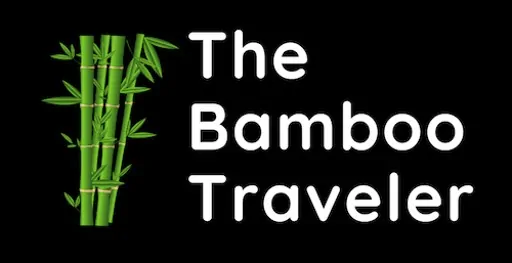





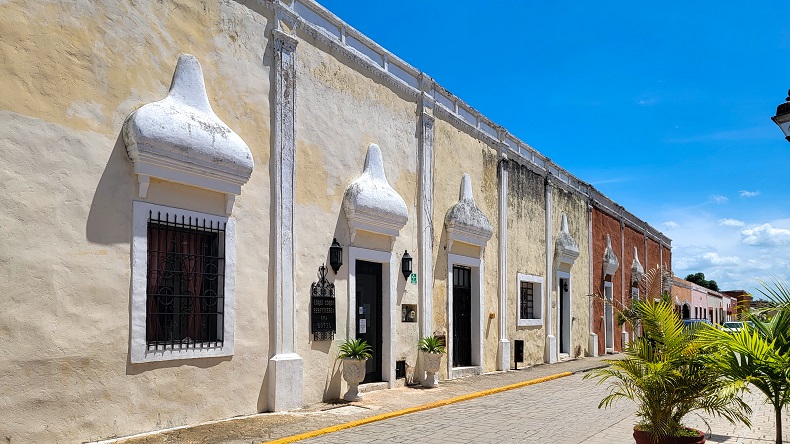

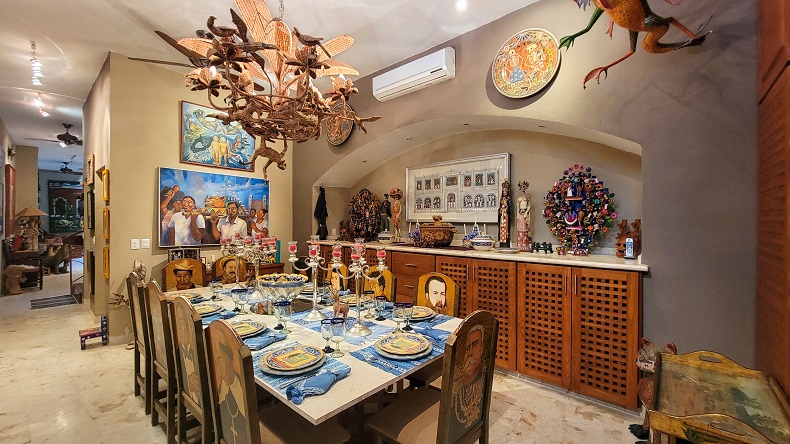

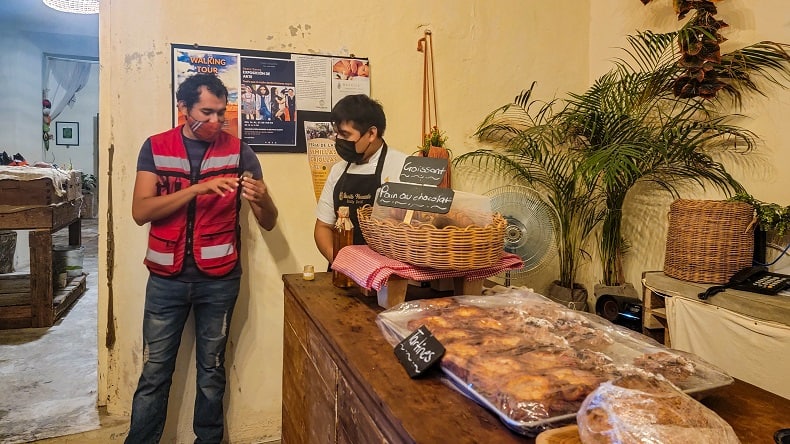


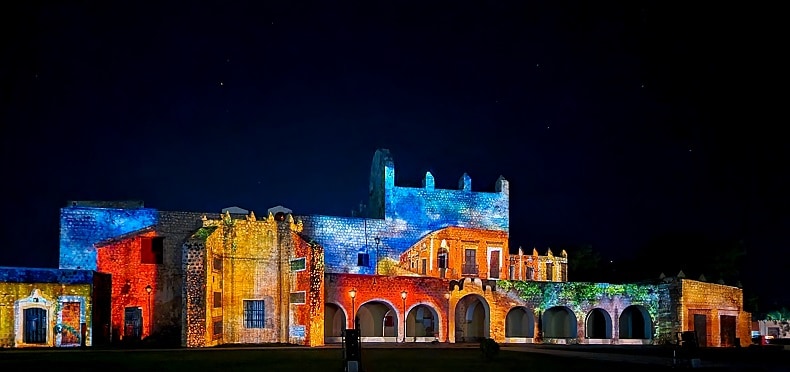

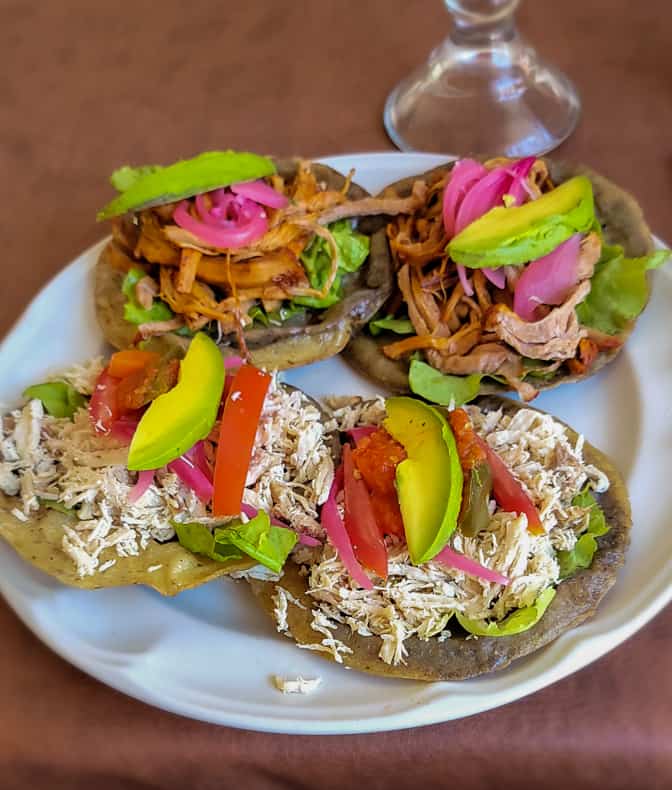

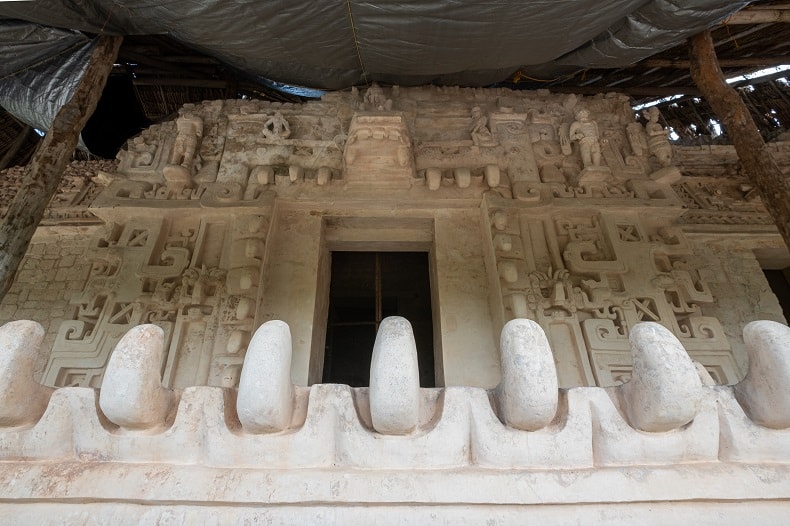


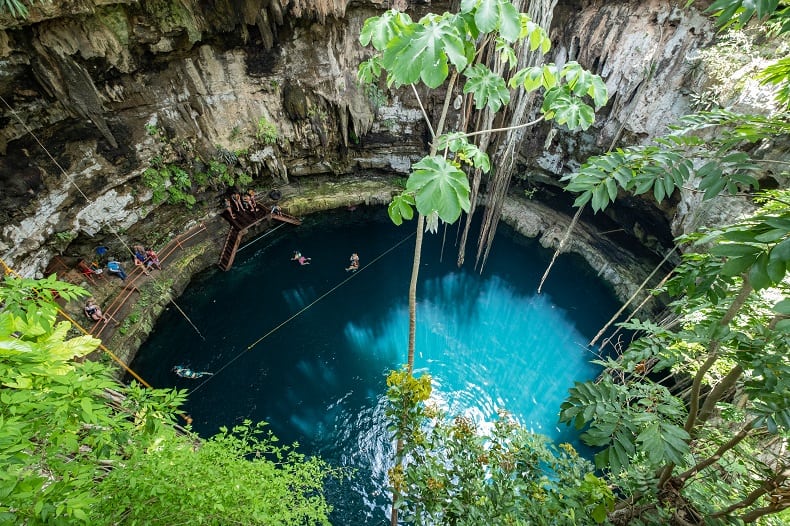


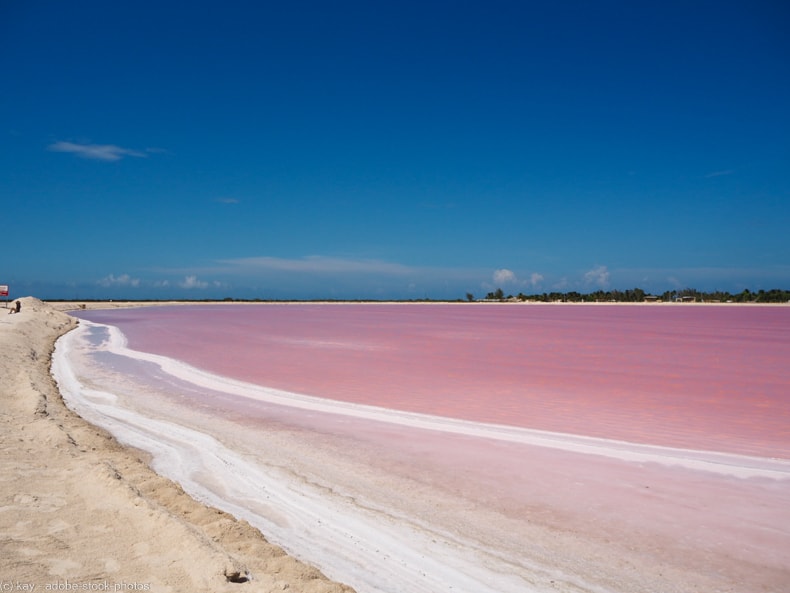






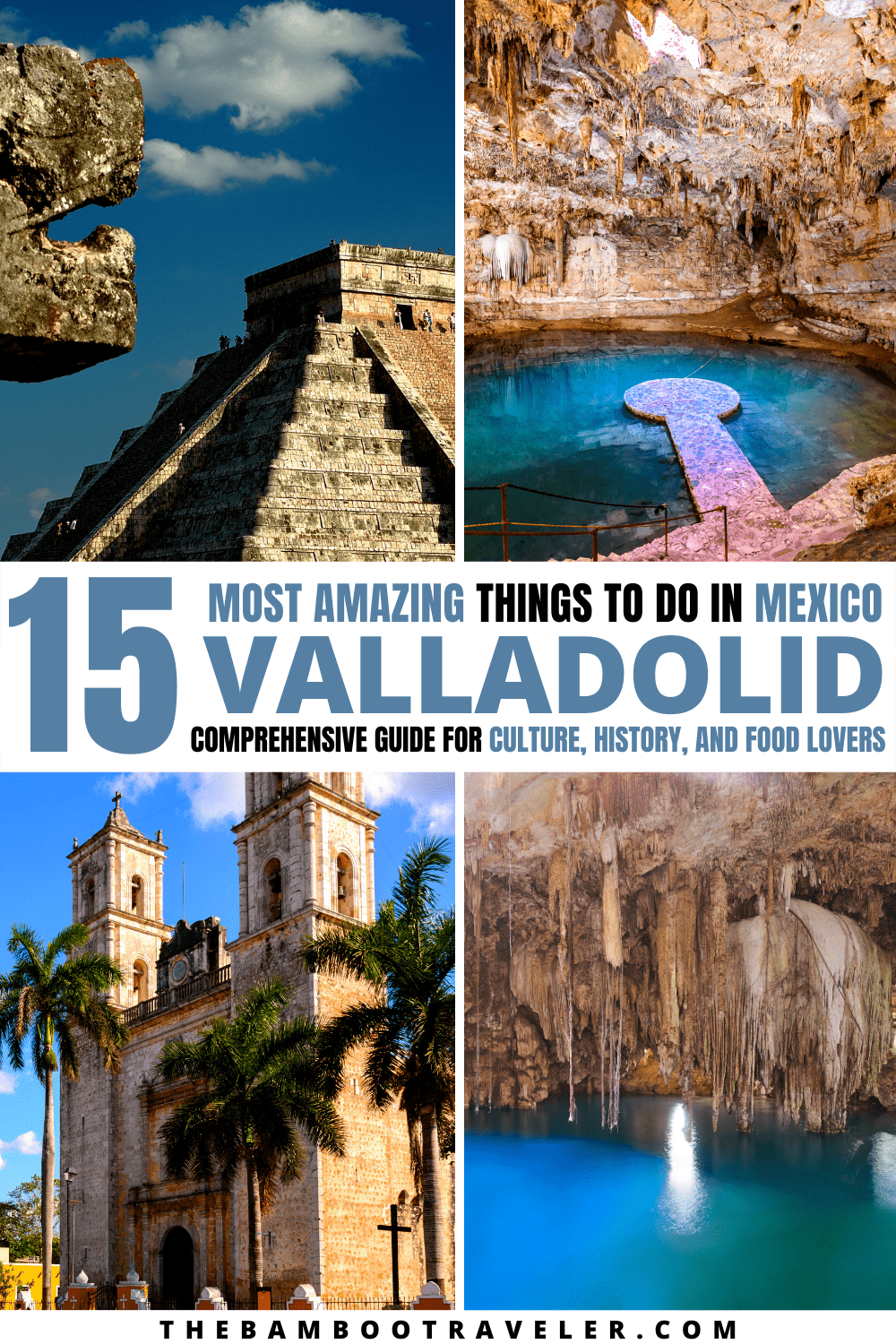



0 Comments